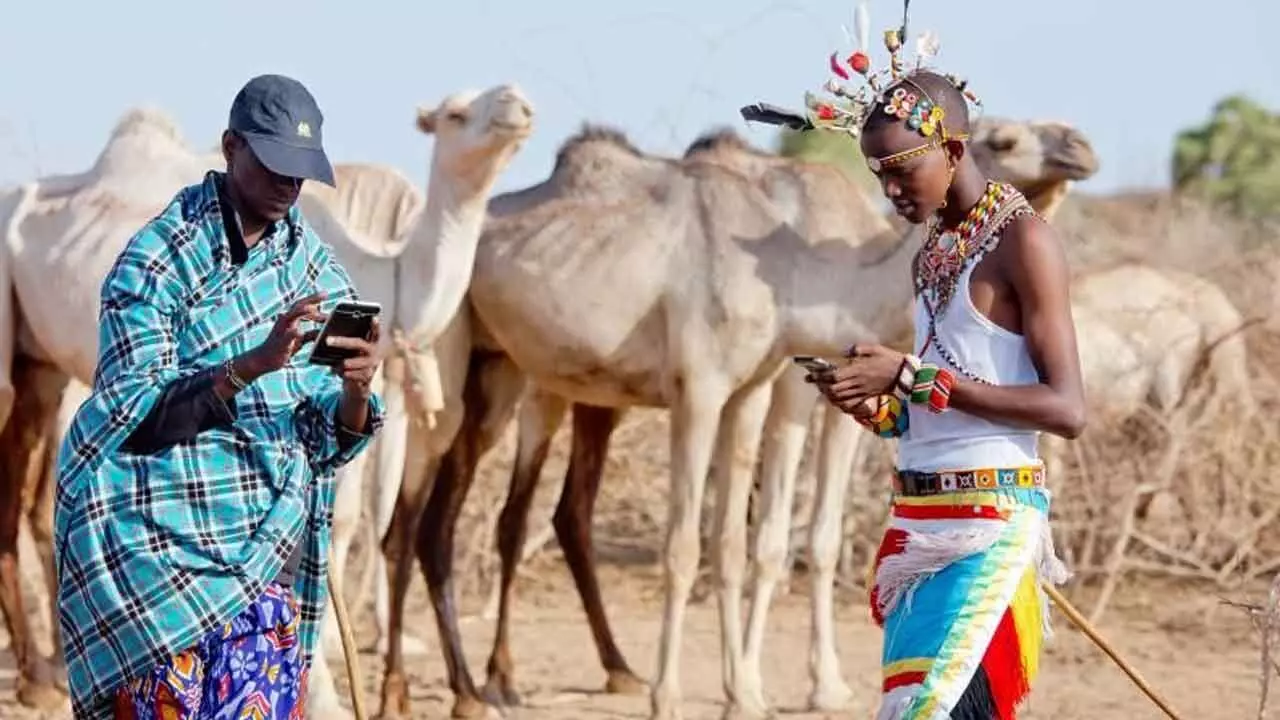UN's open SDG Data Hub Can Foster Public-Private Collaborations
UN's open SDG Data Hub Can Foster Public-Private Collaborations

Critical data for global, regional and national development policymaking is still lacking. Many governments still do not have access to adequate data on their entire populations. This is particularly true for the poorest and most marginalised
The United Nation's Open SDG Data Hub will enable data providers, managers and users to discover, understand, and communicate patterns and interrelationships in the wealth of Sustainable Development Goal data and statistics that are now available.
Big data for sustainable development:
The world is rapidly advancing towards becoming a fully digital society. At a global level, the amount of data is projected to increase more than fivefold, rising from 33 zettabytes in 2018 to 175 zettabytes by the end of this year.
Of this, 49 per cent is expected to be stored in the public cloud, and the number of devices connected through the Internet of Things (IoT) is anticipated to reach approximately 75 billion, which is ten times the world population, by 2025.
However, the digital divide—both between and within developed and developing countries—continues to widen. This gap particularly affects developing nations, especially in Africa, Least Developed Countries (LDCs), and Small Island Developing States (SIDS), hindering their ability to integrate into the global economy and benefit from it.
The data revolution:
The data revolution -- which encompasses the open data movement, the rise of crowdsourcing, new ICTs for data collection, and the explosion in the availability of big data, together with the emergence of artificial intelligence and the Internet of Things -- is already transforming society.
Advances in computing and data science now make it possible to process and analyse big data in real time. New insights gleaned from such data mining can complement official statistics and survey data, adding depth and nuance to information on human behaviour and experiences. The integration of this new data with traditional data should produce high-quality information that is more detailed, timely and relevant.
Opportunities:
Data is the lifeblood of decision-making and the raw material for accountability. Today, in the private sector, analysis of big data is commonplace, with consumer profiling, personalised services, and predictive analysis being used for marketing, advertising and management. Similar techniques could be adopted to gain real-time insights into people’s wellbeing and to target aid interventions to vulnerable groups.
New sources of data - such as satellite data -, new technologies, and new analytical approaches, if applied responsibly, can enable more agile, efficient and evidence-based decision-making and can better measure progress on the Sustainable Development Goals (SDGs) in a way that is both inclusive and fair.
Risks:
Fundamental elements of human rights must be safeguarded to realise the opportunities presented by big data: privacy, ethics and respect for data sovereignty require us to assess the rights of individuals along with the benefits of the collective. Much new data is collected passively – from the ‘digital footprints’ people leave behind and from sensor-enabled objects – or is inferred via algorithms. Because big data is the product of unique patterns of behaviour of individuals, removal of explicit personal information may not fully protect privacy.
Combining multiple datasets may lead to the re-identification of individuals or groups of individuals, subjecting them to potential harms. Proper data protection measures must be put in place to prevent data misuse or mishandling.
There is also a risk of growing inequality and bias. Major gaps are already opening up between the data haves and have-nots. Without action, a whole new inequality frontier will split the world between those who know, and those who do not. Many people are excluded from the new world of data and information by language, poverty, lack of education, lack of technology infrastructure, remoteness or prejudice and discrimination.
Humanitarian action:
In 2015, the world embarked on a new development agenda underpinned by SDGs. Achieving these goals requires integrated action on social, environmental and economic challenges, with a focus on inclusive, participatory development that leaves no one behind.
Critical data for global, regional and national development policymaking is still lacking. Many governments still do not have access to adequate data on their entire populations. This is particularly true for the poorest and most marginalised, the very people that leaders will need to focus on if they are to achieve zero extreme poverty and zero emissions by 2030, and to ‘leave no one behind’ in the process.
Big data can shed light on disparities in society that were previously hidden. For example, women and girls, who often work in the informal sector or at home, suffer social constraints on their mobility, and are marginalized in both private and public decision-making.
Much of the big data with the most potential to be used for public good is collected by the private sector. As such, public-private partnerships are likely to become more widespread.
The challenge will be ensuring they are sustainable over time, and that clear frameworks are in place to clarify roles and expectations on all sides. (https://www.un.org/)

